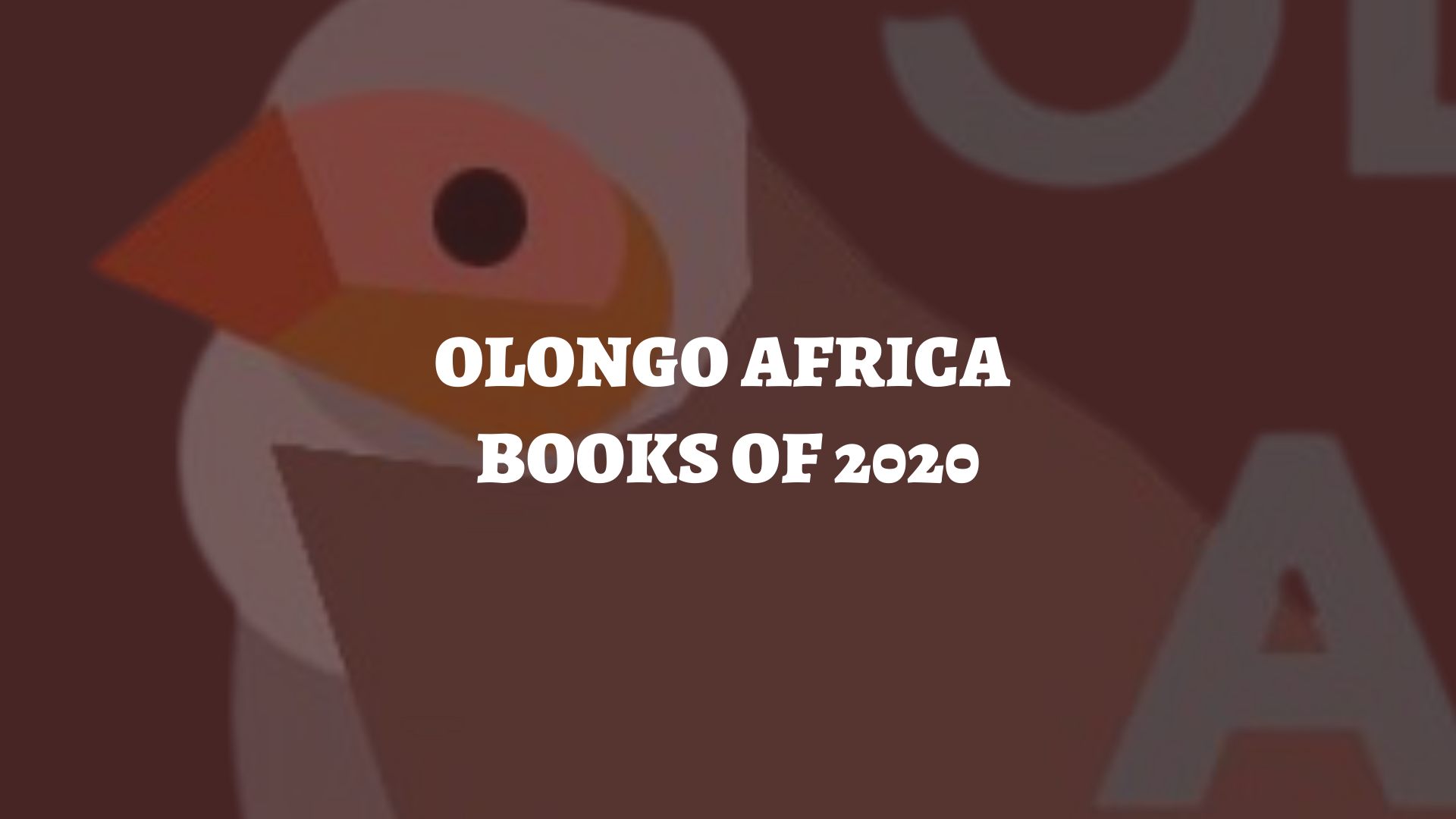
Our Books of 2020
We asked some of our readers and authors what books made the most impact on them. These are books published at any time but in whose pages they found something to keep them going during this annus horribilis, a year that tested the world’s patience, resilience, health, and resolve. Here’s the result.
- Akin Adéṣọ̀kàn, Professor at Indiana University, Bloomington, U.S.A.
KMT: In the House of Life by Ayi Kwei Armah was published in 2002; but, I re-read it this year, as part of research for a book project. KMT is one of the novels through which the Ghanaian-born writer has tried to develop a new literary history of the continent, and more. He starts from the present with the story of two high school students, then goes back to the period of traditional historians (griots) and further back to the professional scribes of old Egypt. The novel has all the features of Armah’s fiction: visionary, evocative of place, beautifully written with high-seriousness, and taking all of African history across millennia in its scope. It is a demanding novel, but it is a novel that every African writer, indeed every writer interested in craft, should read.
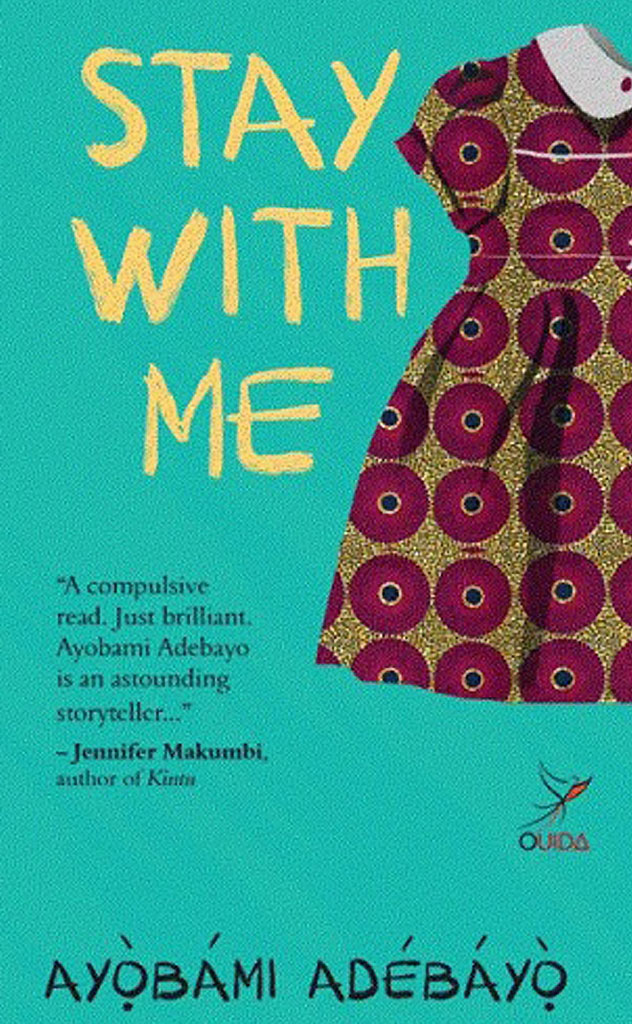
Stay With Me (2017) by Ayobami Adebayo is of course a first novel, and it has glaring stylistic limitations, but Adébáyọ̀ has a strong feel for emotions. She renders one of the most powerful narrations of grieving that I have encountered in recent writings.
- Asante Lucy an academic and creative writer from University of Malawi.
This Child will be Great (2010) by Ellen Johnson Sirleaf – This book gives me insights into the history of Liberia in terms of its formation and its people. Also, it is inspiring for women who aspire to be great because Johnson Sirleaf’s story is a story of courage, resilience and fearlessness.
Dust (2013) by Yvonne Owuor – There is mastery in Owuor’s language. It’s a beautifully written book even though it deals with quite heavy material. The book invokes vivid imagery while covering troubled characters whose lives are interwoven in the fraught history of Kenya from colonial times, independence and postcolonial Kenya.
- Chika Unigwe, author of Better Never Than Late. Cassava Republic.
Ogadinma (or ‘Everything Will be Alright’) (2020) by Ukamaka Olisakwe is one of the books I read this year. It is such a beautifully crafted story of heartbreak and resilience. It is a familiar study yet nothing about it feels cliche or old. [Read Uche Peter Umez’s review of the book here]
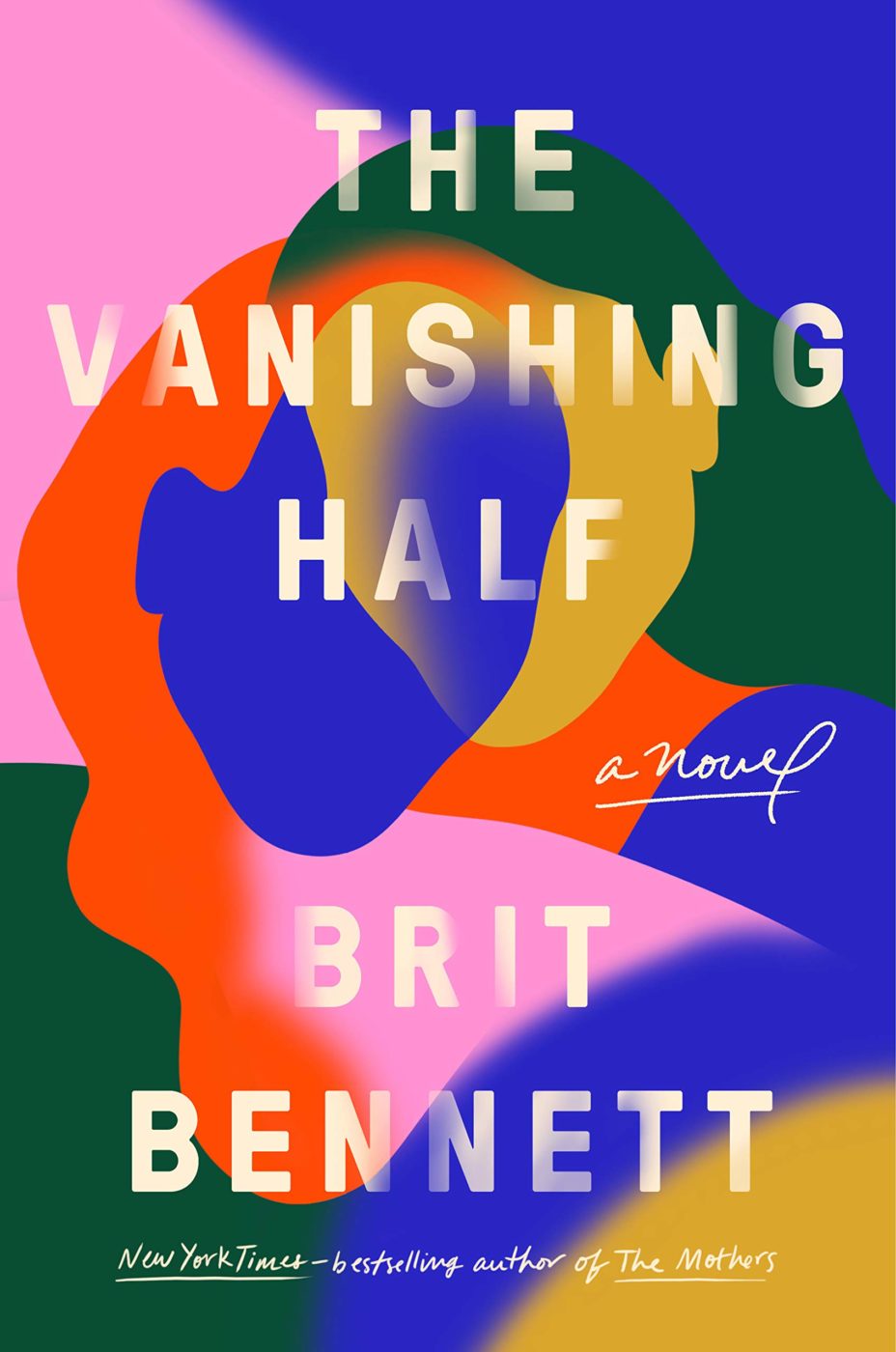
The Vanishing Half (2020) by Britt Bennet is another one. I love how it frames passing not as something for which one should be punished by society (because punishment frames whiteness as something that any non-white who claims it must pay for) but as something for which whatever punishment there is is self inflicted – loneliness and loss of self.
- Dan Hicks, Professor of Contemporary Archaeology at St Cross College, Oxford. His new book The Brutish Museums: The Benin Bronzes, Colonial Violence and Cultural Restitution is published by Pluto Press.
In nonfiction, I loved Professor Olivette Otele’s new landmark study of the central place of the lives and experiences of people of African descent in Europe’s history. Accessibly written, it skilfully combines a reassessment of a hidden past across two millennia with an urgent celebration of multiple identities in the present. African Europeans: An Untold History reframes how we understand the enduring and vital connections between Africa and Europe—at human as well as transcontinental scales.
Fiction has been more important than ever during 2020 — less to help us escape the horrors the year has hurled at us than to help us deal with them. A.L. Kennedy’s new collection of short stories, We Are Attempting to Survive Our Time by A.L. Kennedy, caught the mood. From a restaurant to a zoo, from a panic attack at Kings Cross station to a couple arguing at Cologne cathedral, it’s a blend of terse, unsettling, funny, brutal, delicate, bleak, ordinary, hopeful stories about conflict, trauma, and how people “do their best”.
- Dèjì Tóyè is an enterprise lawyer by day and maintains a number of other interests the rest of the time: as an essayist, poet, playwright and editorial cartoonist.
Richard Florida’s The Rise of the Creative Class, Revisited (2012) finally arrived this year among the last batch of books I have been bringing back in batches since I left them in the UK in 2014. At the time of writing this edition, financialised capitalism had collapsed and further validated Florida’s observation, ten years earlier in the first edition, on the arrival of the ‘creative class’ as a new force reshaping the structure of the economy and society. Thomas Friedman had expressed concerns in Lexus and the Olive Tree (1999) that the rise of the “talented” class has merely deepened the old ‘winner takes all’ approach that continued to widen inequality both within the industry and relative to other sectors. Florida, on the other hand tries to show that ‘a rising tide lifts all boats’. In a generally sunny outlook, Florida’s three ‘Ts’ of “technology, talent and tolerance” suggest that the rise of the creative class is a force for good and openness in the world. Since the research focuses mainly on American national and municipal-level statistics, the trouble with the book is the rehash of the old proposal that a perceived American success could then be spread elsewhere. This book is important for understanding the significant rise of the creative industry, as an industry with its own logic, and as an economic force. Those who would reengineer it for more equitable distribution or to press it into service of a better world could then move on from there.
- Gbenga Adesina, author of Painter of Water. He won the 2020 Narrative Prize.
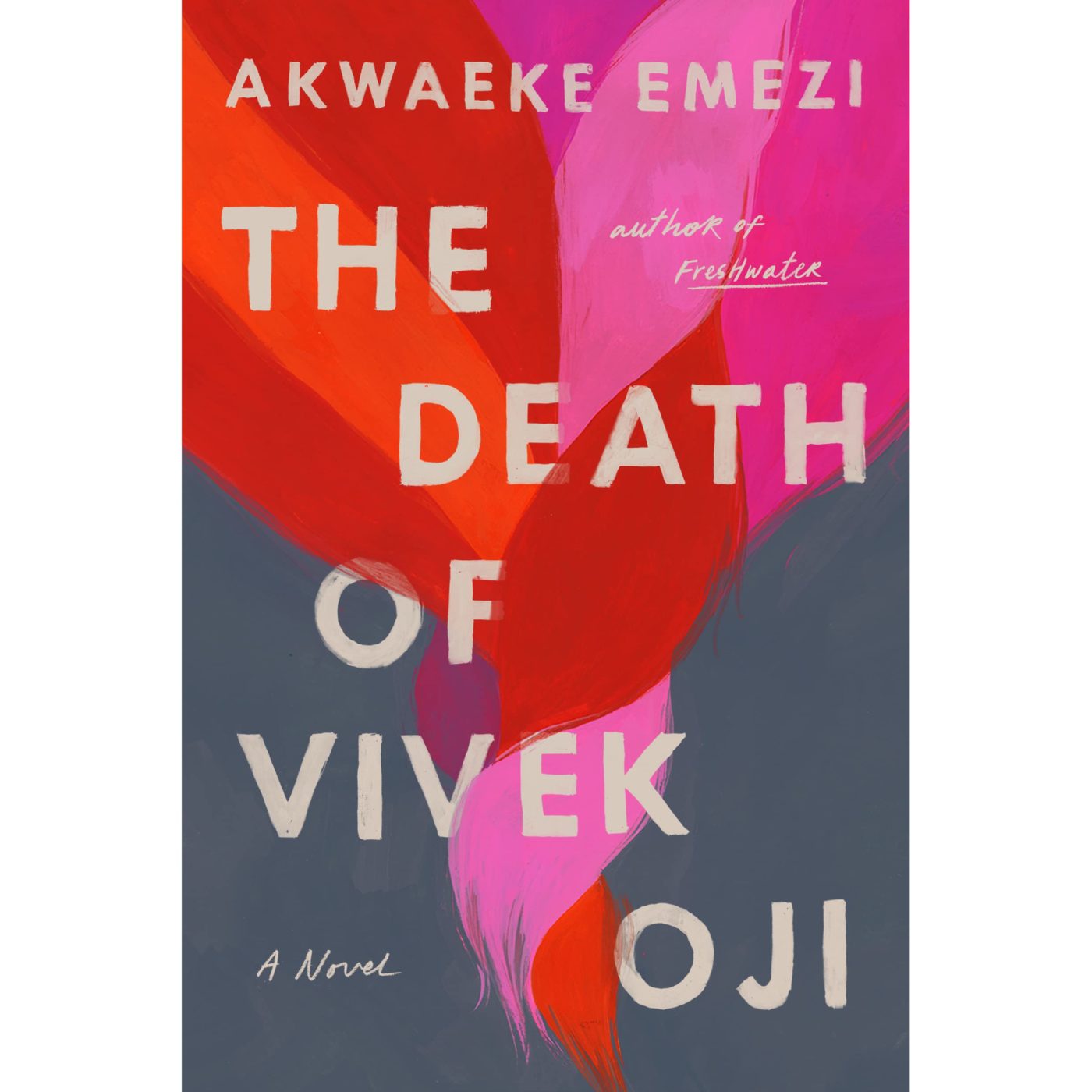
The Death of Vivek Oji (2020) by Akwaeke Emezi — In the African imagination, sometimes death is a form of self knowledge. When I die, finally, I’ll know myself. What Emezi does with a scalpel of care in the book is to pitch death against a life rendered with such adroit grace, and bluesy delicacy and detail that death does not even come close to diminishing the moral force and beauty of that life. The line that comes to mind is: “Death, where is your sting? Where is your victory?” There is an overlay of ease to the craft, but you sense that what appears like ease is in fact what they had arrived at after years of deep searching and understanding. The private atmosphere of the book followed me around for weeks after I read it. I was moved and enlarged by it.
Frottage (2019) by Keguro Macharia – Keguro has had a kind of “underground” following for a while now. There is a sweetness to know that the following did not come from any institutional anointing but from “a gathering-togetherness,”; or, what a friend called a “tender intellectual marronage.” Out of that organic-ness derives Frottage (which came out last year but I read it this year alongside Zakiyah Imani Jackson’s Becoming Human). I arrived at several readings of it. But here’s one: I read it as a cartography of images across ruptures: the lineage of these images, the genetics of these images through texts and histories. Macharia, using desires and affective kinship, where fictive and biological lineages have failed, seeks to suture. He seeks a spiritual repair of what is broken. It’s a song of longing. I really love the short last chapter where he breaks into a rhapsody, a thorny one. He surrenders to the lyric.
- Geoff Ryman was Canadian, born halfway through the last century, has 18 literary awards, a series of interviews with 100 African Writers of SFF published in Strange Horizons. His long short story What we Found set in Nigeria won a Nebula. He has won the Arthur C Clarke Award twice, the Canadian Sunburst Award twice and the British science fiction association award three times
I read Old Drift (2019) by Namwali Serpell, 700 beautiful pages tracing histories of three families in Zambia from 1912 to something like now, veering off into a different universe about 2012 into good credible science fiction.
Entangled Life by Merlin Sheldrake is an eye-opening book about fungus. There would be no life on earth without it. And fungus can take over ant brains.
Pale Rider by Laura Spinney is a 2017 history of Spanish Flu the 1918 epidemic that killed between 50 and 100 million people. Why don’t we know more about it? Well partly because most of them were not American or European. This book not only shows how and why history repeats (basically it’s just outside living memory) and how much this pandemic replays issues of social response and relations with science—but also again about how politics ideology and ethnocentrism distort our responses. Written to warn of coming pandemics and to de-colonise history a little bit it is eerie reading in 2020.
- James Murua is a blogger, journalist, and podcaster who has written for a variety of media outlets in a career spanning print, web, and TV. He has conducted workshops on blogging and social media in Kenya, Uganda, Tanzania, and Malawi and has been a media consultant for the Goethe Institut, Nairobi. He blogs at JamesMurua.com
The First Woman (2020) by Jennifer Nansubuga Makumbi tells a tale of an inquisitive, headstrong protagonist Kirabo growing up during the 1970s Idi Amin era. It was a lesson in an African feminism that is rarely seen on the written page. And for me, it was the exquisite storytelling from Uganda’s hottest writer right now.
The Deep Blue Between (2020) by Ayesha Harruna Attah is a book for Young Adults based in the Transatlantic slavery era featuring Hassana and Hussaina girls who are captured to be slaves. One ends up being in Brazil and the other in the Gold Coast in Ghana. I loved the storytelling from the Ghana-born Senegal-based writer. She handles the sensitive matter of living in such a tumultuous period in the history of our continent and race.
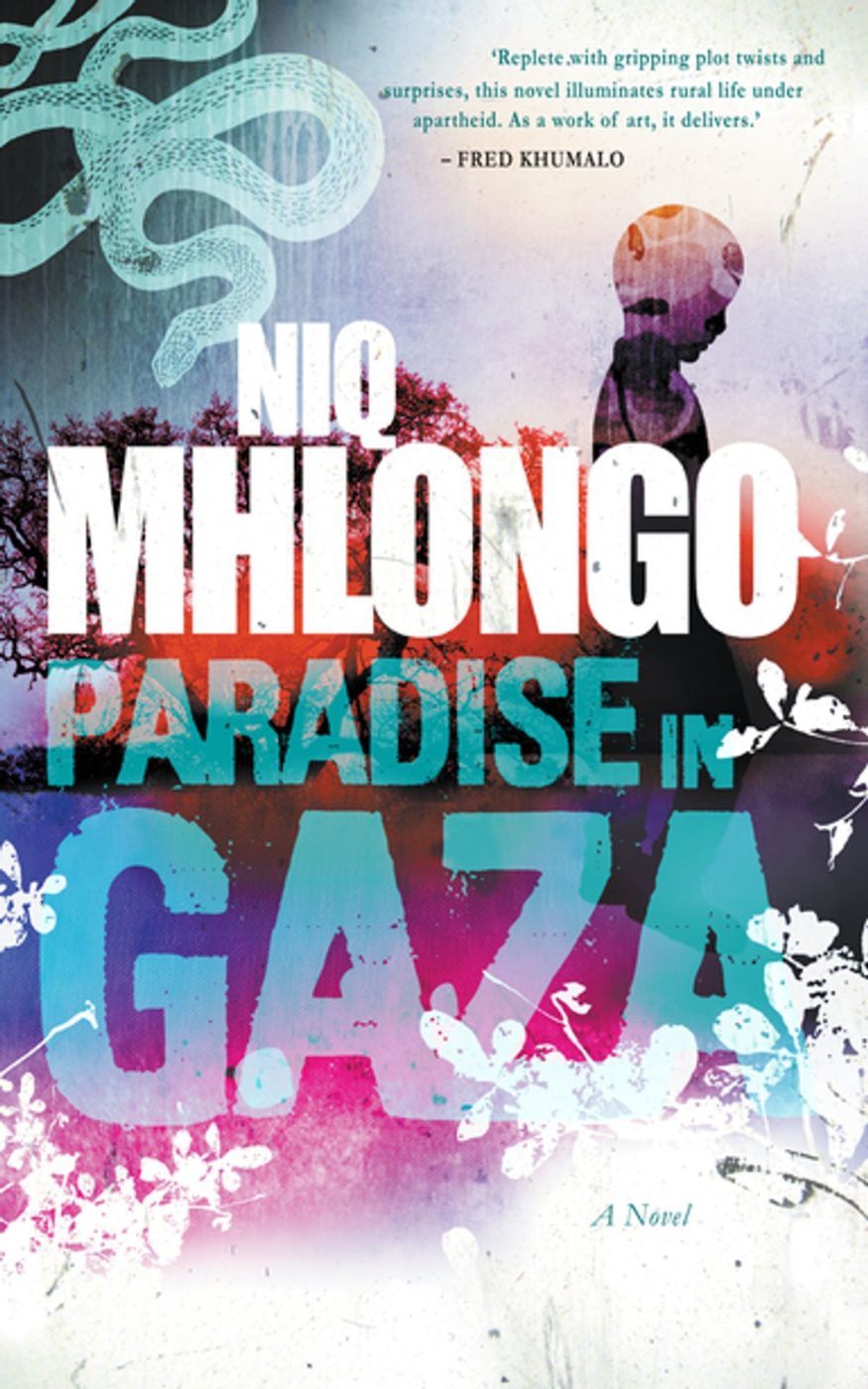
Paradise in Gaza (2020) by Niq Mhlongo. This latest novel from the Soweto-born writer who has made his name from fast-paced plots in urban areas is probably his most ambitious. With the new title, he uses two women characters to speak to the rural life in apartheid South Africa as well as African spirituality. It is more measured and deliberate and the storytelling shines in one of the best books to come out of the continent this year.
- Jude Cowan Montague is an artist and writer, sometimes poet. She presents the weekly show ‘The News Agents’ on Resonance FM exploring creative and working ideas from around the world. She is based in Hastings, Sussex and has a print workshop where she creates large colouful graphic prints. This year she released her first graphic novel, Love on the Isle of Dogs.
Wings: True Stories of Prisoners in Prose, Illustration and Comics by Victoria Anderson and Wallis Eates is a work by the artist and writer team Wallis Eates and Victoria Anderson who spent months in a Victorian men’s prison in London working closely with inmates to turn their personal stories into short films. After months of work, the prison authorities felt concerned about media exposure and decided all the films must be destroyed. Now left with nothing but transcripts and notes, Anderson and Eates decided to turn the stories into a book. The result is really unusual both in terms of content and the visual representation. It’s not just a storyboard, it’s a real work of art and uses the architecture of the prison as a visual device. It’s full of the feeling of angels and devils, dark and light, humanity hunted down caged and lit in the darkness.
In Any Fool Can Write Fiddle Tunes, fiddle creator Chris Haigh presented this unique guide to the composition of folk tunes. He wrote it in 2003 but I was introduced to it this year. It’s a really unusual, helpful book and demystifies music making in a way few others have done. I recommend all Chris’s books to anyone learning fiddle, and also recommend his youtube output, simply called ‘The Fiddle Channel’. Learning fiddle has been my lockdown task and I’ve been taking lessons online with the Irish fiddler Kevin Burke. It’s been really helped by both Chris and Kevin and if you’re thinking of taking up this incredible instrument I can’t recommend their work highly enough.
- Makena Onjerika is a Kenyan writer and the winner of 2018 Caine Prize for African Writing.
Scarlet Odyssey (2020) by C. T. Rwizi. This novel has reshaped African sci-fi fantasy by centering African inspired mythology and magic. Here, science is magic and magic is science. Rwizi has created strong storylines but also a world that is both tangible and layered with mystery.
- Maria Bustillos is a founding editor of The Brick House.
A valued colleague and friend, Brian Morton of Sarah Lawrence College, invited me to give a talk last spring on the topic of George Orwell’s connection to We, a work of speculative fiction written around 1921 by the Russian dissident Evgeny Zamyatin. All the research around this talk was easily my favorite reading of the year. In addition to revisiting We, I had the pleasure of rereading 1984, a book which, should humanity survive this dark period, will have been instrumental to our survival. And I made a first acquaintance with Heller and Nekrich’s Utopia in Power, an extraordinarily absorbing history of the Soviet period which, I am embarrassed to report, I have yet to finish.
Very recently I started reading King of the World by David Remnick, an account of the life of the late Muhammad Ali. It’s the most exhilarating book I’ve read in a very long time, about a man who lived his principles no matter the cost. I love it.
- Marion Wallace, Lead Curator, Africa, British Library, London
My top choice of 2020 has to be Bernardine Evaristo’s Girl, Woman, Other (2019), winner of the 2019 Booker Prize. My copy comes from my first joyful assault on actual bookshops, full of paper and people, after the end of the first UK lockdown. Evaristo’s telling of the interweaving lives and histories of Black women in Britain is astoundingly complex, moving and compelling, all delivered with an assured lightness of touch.
I heard Inua Ellams read from his epic story in verse, The Half-God of Rainfall (2019), at Africa Writes 2019. When I came to read this beautifully produced short work myself, it did not disappoint: dramatic, original and thought-provoking, as well as (for me) a link to a time when we could assemble in a room together without a second thought.
2020 was also, of course, the year of Black Lives Matter, and I’m now immersed in Robert Winder’s Bloody Foreigners: The Story of Immigration to Britain (first published 2004). Although Winder misses some important things – such as Elizabeth I’s attempts to deport Black people in the sixteenth century – his highly readable book illuminates an important but often neglected aspect of the UK’s history.
- Yemisi Aribisala is an award winning Nigerian writer and autodidactic painter living in London. She is the author of Longthroat Memoirs.
I read The Art of Rivalry Four Friendships, Betrayals, And Breakthroughs in Modern Art (2017) by Sebastian Smee explores art by using the egalitarian language of human emotions. That is a very bad summary because the book is so much more and full of delightful, wicked stories. To have works of art discussed in easily accessible language of envy, love, deceit etc appeals to me. I like that story in Maya Angelou’s Mom and Me and Mom where she finds herself in front of a Matisse and becomes so overcome with emotion she weeps. The Art of Rivalry confirms many things I feel about art -that it idealistically belongs to everyone and therefore our discussions of it should be simple and inclusive. We shouldn’t have to use complicated highfalutin words to express how we feel about beauty. mari
France is a Feast: The Photographic Journey of Paul and Julia Child (2017) by Alex Prud’Homme and Katie Pratt I loved because I am a failed romantic who loves safe plodding love stories where nothing goes wrong at-all at-all. I love the compelling intricacies of the machinery of the relationship between Julia and Paul Child. I find irresistible the fact that he built a kitchen for a woman taller than him, more renowned than him, and the fact that at the heart of this solid gold love story is food.
In The Man Died (1971), Wole Soyinka, the Nigerian Nobel Laureate painstakingly documents his experiences while imprisoned between 1967 and 1969. The conversations are close and tense. The observations of human nature, of corruption and intrigues in corridors of power are remarkable. The Nigerian Civil War began in July 1967 and ended in January 1970, so the view point of this brilliant mind locked up and moved three or so times, through humiliations and hunger strikes and interrogations is indispensable reading, especially when you come from a country that feels like it is perpetually on the brink of civil war. Recent violence against civilians by the Special Anti-Robbery Squad of the Nigerian police agonisingly reinforces the need for inspecting old wounds and for re-reading our Nigerian prophets’ writings.
- Zukiswa Wanner is a South African novelist. Her first novel was published in 2006 and shortlisted for K. Sello Duiker Award. She has chaired different literary prizes in Africa and in 2020 she was awarded the Goethe Medal for her outstanding contribution to arts and literature in Africa.
Critical But Stable (2020) by Anagel Makholwa is a serious but hilarious take on marriages in the long term and the consequences thereof. Finances, sex and couples’ secrets are dealt with by Makholwa’s sharp wit as only she can.
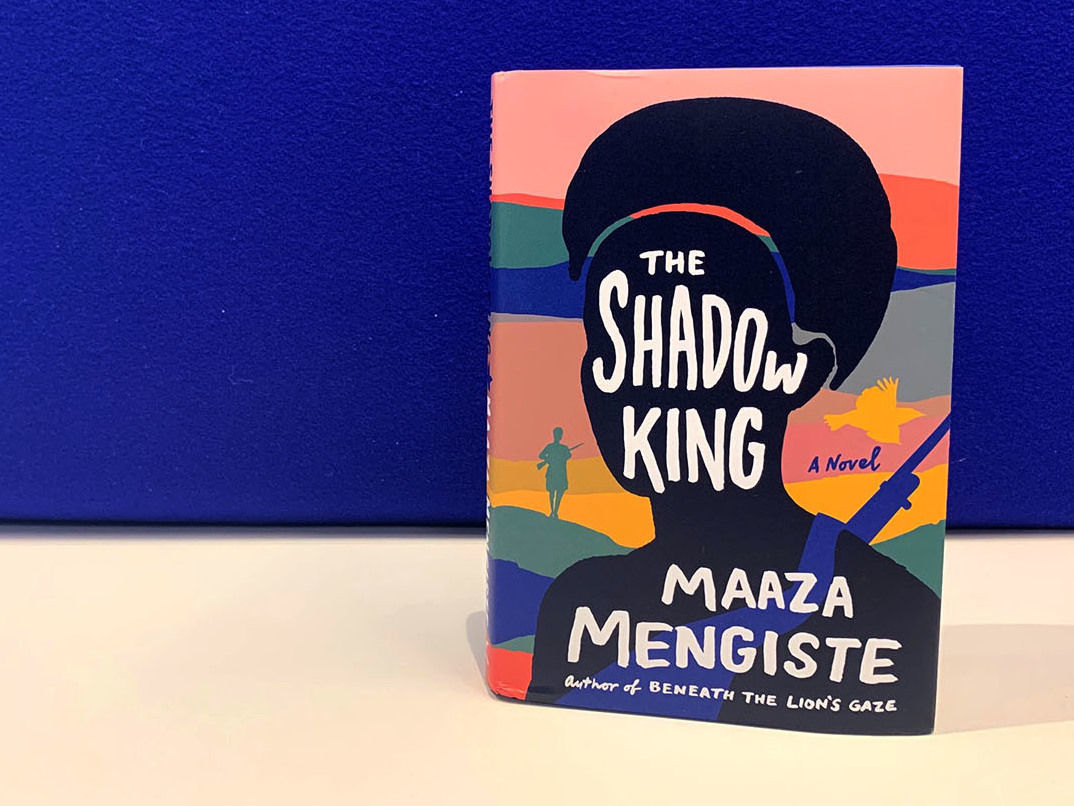
Shadow King (2020) by Maaza Mengiste is my second pick. In this novel, Mengiste teaches the reader (and the writer as the reader) how to tackle historical novels well. The lyricism and the narrative are somehow managed to be equally balanced.
Dreams and Assorted Nightmare (2020) by Abubakar Adam Ibrahim. These tales from Zango remind us why Ibrahim may be one of the greatest writers of our time writing short stories as effortlessly as he does longer prose. The characters and their foibles stay with you long after you have put the book down.
